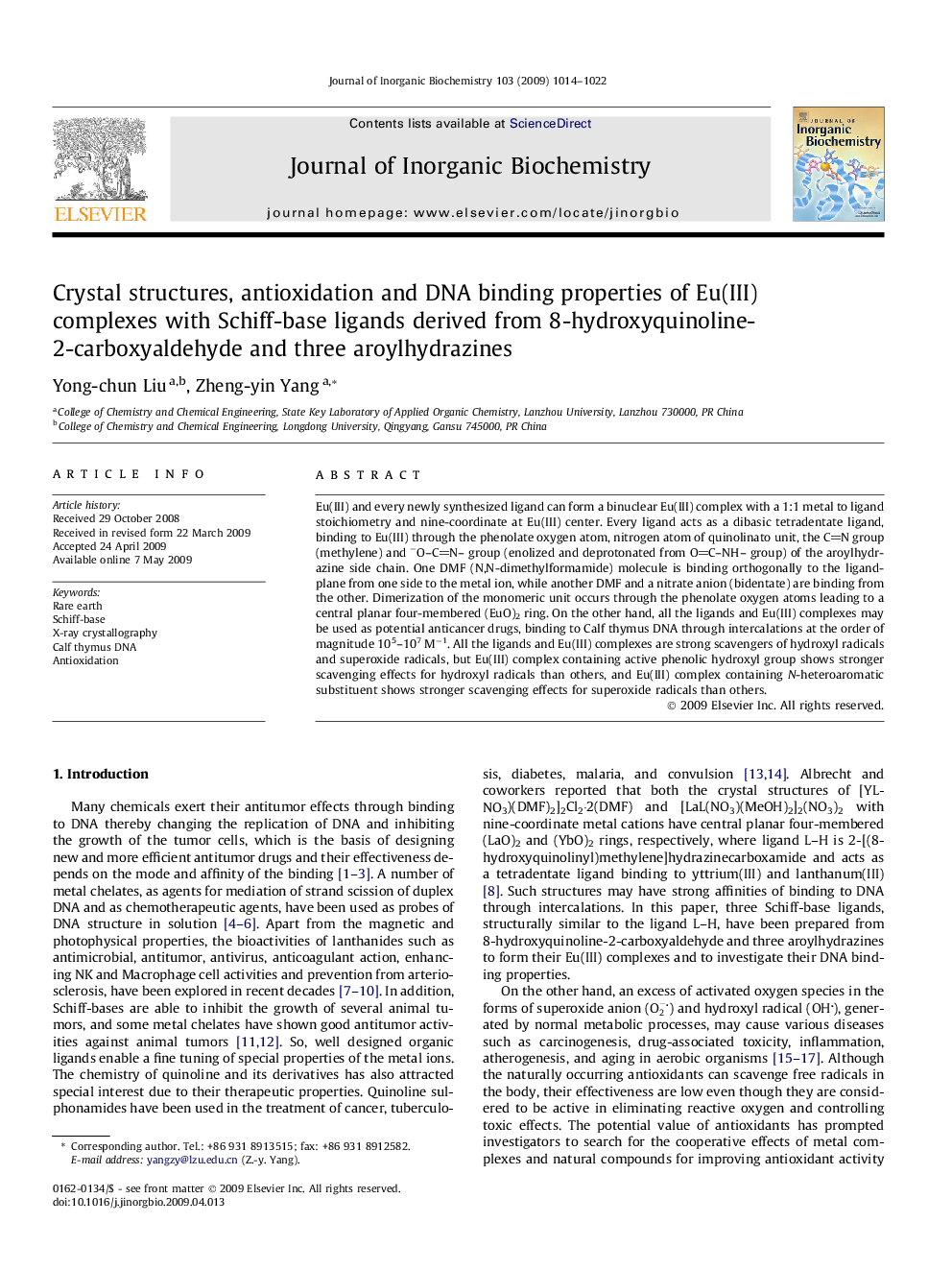| کد مقاله | کد نشریه | سال انتشار | مقاله انگلیسی | نسخه تمام متن |
|---|---|---|---|---|
| 1318031 | 976635 | 2009 | 9 صفحه PDF | دانلود رایگان |
عنوان انگلیسی مقاله ISI
Crystal structures, antioxidation and DNA binding properties of Eu(III) complexes with Schiff-base ligands derived from 8-hydroxyquinoline-2-carboxyaldehyde and three aroylhydrazines
دانلود مقاله + سفارش ترجمه
دانلود مقاله ISI انگلیسی
رایگان برای ایرانیان
کلمات کلیدی
موضوعات مرتبط
مهندسی و علوم پایه
شیمی
شیمی معدنی
پیش نمایش صفحه اول مقاله

چکیده انگلیسی
Eu(III) and every newly synthesized ligand can form a binuclear Eu(III) complex with a 1:1 metal to ligand stoichiometry and nine-coordinate at Eu(III) center. Every ligand acts as a dibasic tetradentate ligand, binding to Eu(III) through the phenolate oxygen atom, nitrogen atom of quinolinato unit, the CN group (methylene) and âO-CN- group (enolized and deprotonated from OC-NH- group) of the aroylhydrazine side chain. One DMF (N,N-dimethylformamide) molecule is binding orthogonally to the ligand-plane from one side to the metal ion, while another DMF and a nitrate anion (bidentate) are binding from the other. Dimerization of the monomeric unit occurs through the phenolate oxygen atoms leading to a central planar four-membered (EuO)2 ring. On the other hand, all the ligands and Eu(III) complexes may be used as potential anticancer drugs, binding to Calf thymus DNA through intercalations at the order of magnitude 105-107Â Mâ1. All the ligands and Eu(III) complexes are strong scavengers of hydroxyl radicals and superoxide radicals, but Eu(III) complex containing active phenolic hydroxyl group shows stronger scavenging effects for hydroxyl radicals than others, and Eu(III) complex containing N-heteroaromatic substituent shows stronger scavenging effects for superoxide radicals than others.
ناشر
Database: Elsevier - ScienceDirect (ساینس دایرکت)
Journal: Journal of Inorganic Biochemistry - Volume 103, Issue 7, July 2009, Pages 1014-1022
Journal: Journal of Inorganic Biochemistry - Volume 103, Issue 7, July 2009, Pages 1014-1022
نویسندگان
Yong-chun Liu, Zheng-yin Yang,